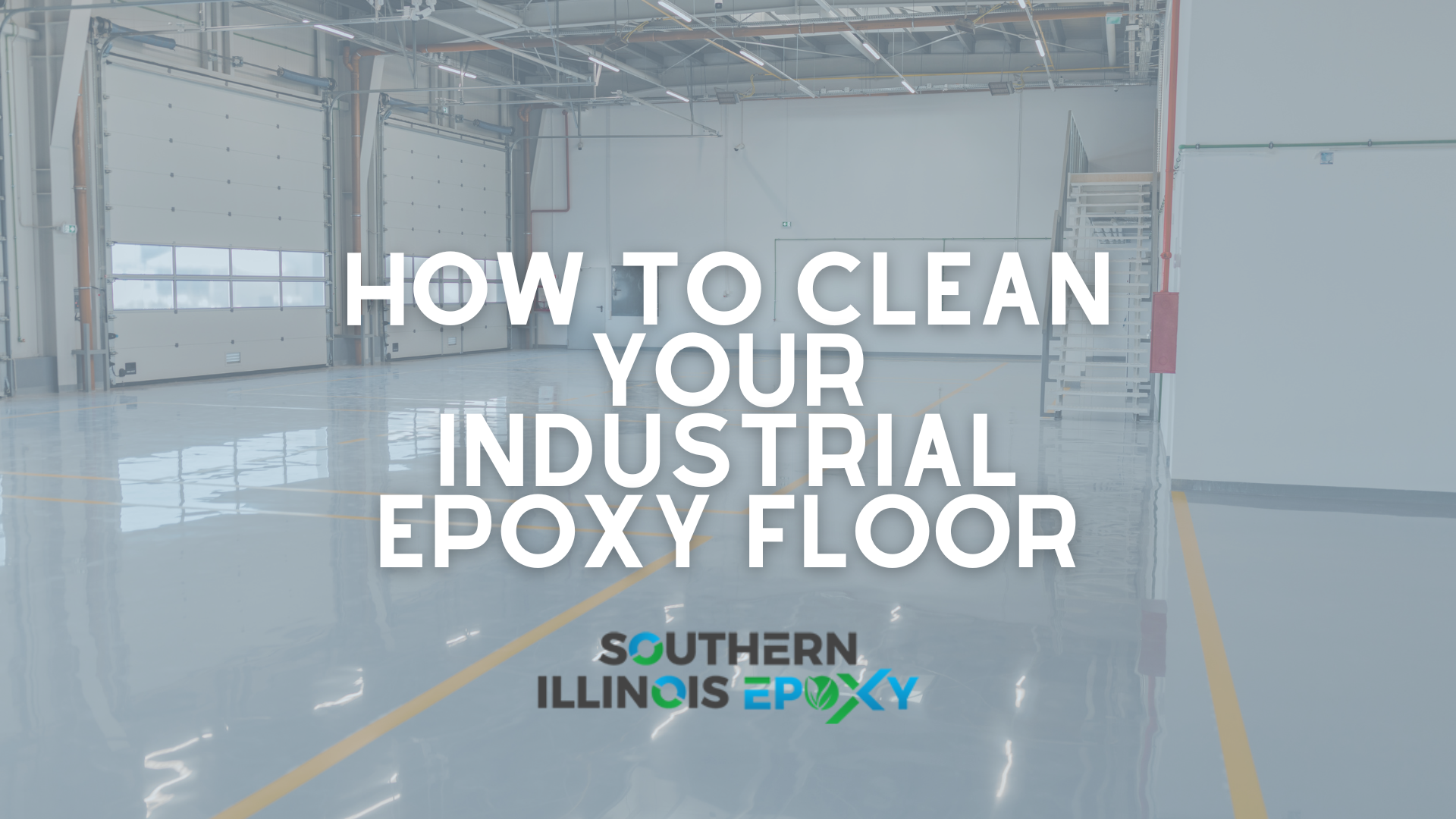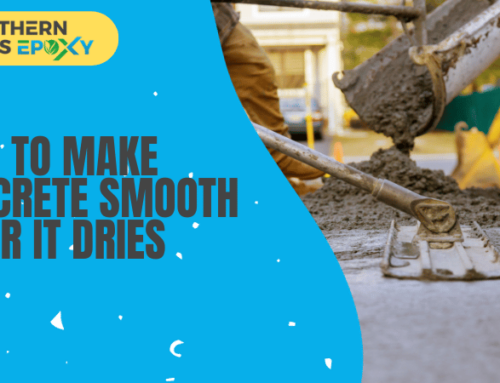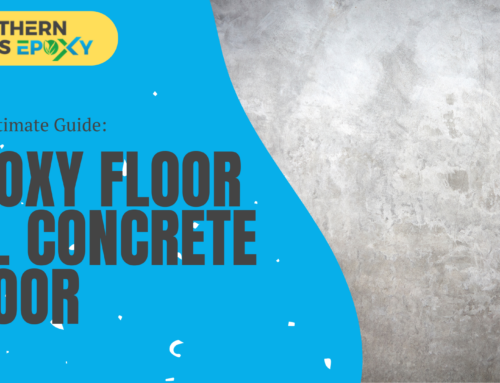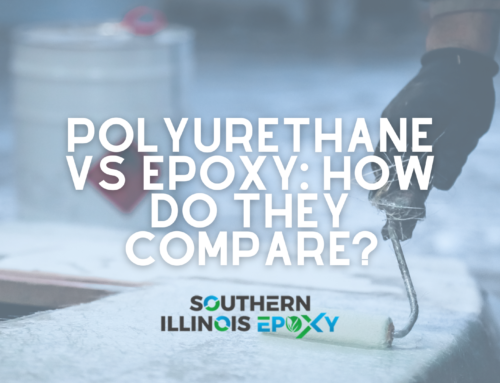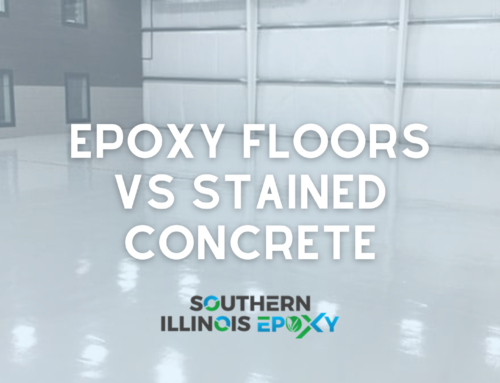Epoxy is a top choice as an industrial flooring material for many reasons including its resilience, aesthetic appeal, and ease of maintenance and cleaning. Liquid spills, stains, and chemicals do not attach to it as they do with other flooring types. What would be a rigorous cleaning process on other floor surfaces like carpets, brick, and wood requires a basic cleaning regimen on epoxy floors to keep them in top shape.
Cleaning Industrial Epoxy FLoors
Cleaning industrial epoxy floors depends on the size of the floor, the extent of soiling, and what is being cleaned. Each type of soiling will require a specific approach to get the floor in shape. Here’s what you need to do to clean your industrial epoxy floor:
Clean Up Dust and Debris
Industrial spaces can be busy places that are constantly soiled with the movement of machines and people. If you let the dust and debris stay too long, it makes the floor surfaces abrasive which leads to scratches or dullness over time. Dirt embeds onto the glossy floor under the weight and movement of stuff and staff as you use the floor. Epoxy is durable and so, you might not see the damaging effects immediately. That’s why we recommend regular cleaning by use of a mop or broom to make sure this doesn’t happen.
A commercial dust mop is designed to cover a large surface area and will come in handy if you need to use your floor as soon as possible. You can also use a vacuum cleaner to effectively clean hard-to-reach areas of your floors.
Clean Up Heavy Soling
If for some reason you left dirt on your epoxy floors for long, you’ll have to use advanced cleaning methods to effectively clean the surface. This begins with sweeping the surface to remove the loose particles. Then use hot water plus clear ammonia to scrub off any remaining stains. For every gallon of water, mix 5 ounces of ammonia. You want to ensure your mop is clean before using it to avoid contaminating your solution then clean it after use as well.
Clean Up Chemical Spills
If your industrial space handles automotive, it’s inevitable that you’ll spill antifreeze, gasoline, oil, and other chemicals on the floor. The trick to successfully remove these spills is by quickly absorbing them with a rag or mop. This prevents them from soaking into the floor after some time and also, it helps you avoid slipping and falling as you work.
Even though this flooring type is hardwearing, some chemicals can cause a reaction that might change its color. So you want to neutralize any chemical spills that occur on your epoxy floor. That means you should always have a neutralizing agent close by all the time just in case a spill happens. After you neutralize the chemicals, clean them up using plenty of water. The residue that results from this should be carefully dumped because if you let them into the environment they can cause harm to plants, flowers, and animals.
Spot Clean Whenever You Spill Something
What would you do if you spilled beverage or food on your epoxy floor? You shouldn’t wait till the end of the week to clean up such floor surfaces. Spot cleaning is what you should do – you address the problem immediately when it happens and at the spot it happens.
Hose to Clean Large Floor Surfaces
If you want to clean the entire industrial floor (which is often large in most cases) use a hose to make the task easier. That’s how you get the overall cleaning without spending too much time and effort. After you are done hosing, use a squeegee to dry it up.
Prevent Future Staining
Epoxy is a durable material that can handle most industrial tasks but you still have to prevent any future damage that could result from soiling and activity on the floor. Use welding mats in places where welding is happening. That way you avoid burn marks on your epoxy floor. Also, use pieces of plywood in the areas you keep heavy loads.

How to Address Common Staining Problems on Your Epoxy Floors
Different soiling comes with unique challenges that you should understand first before you clean the floor. Here are common staining problems you’ll find on industrial epoxy floors.
Tire Marks – If you drive over your epoxy floors, chances are that you’ll get tire marks over it. If this happens, seclude the place then soak it in water. Get a degreaser and apply it over the marks then let it settle for half a day. When you scrub this area with a sponge, the marks will easily detach. Rinse with clean water, wipe it clean, then give it time to dry.
Mildew Stains – It’s rare for mildew stains to develop on epoxy floors, but it’s still possible especially in the areas where the floor meets the wall. Get a mixture of trisodium phosphate together with a powdered laundry agent. Use this mixture together with clean water to scrub away mildew stains. If that doesn’t work, get chlorine bleach together with water to do the cleaning.
Rust Stains – It’s possible to get stains on your epoxy floor if metals are left in direct contact with the floor surface and moisture. Such stain can be removed using a soft scrub pad and a little soap. Don’t go too hard on your floor surface because you might scrub away the shine.
Grease Stains – You can apply this method when oil and gasoline spill on the floor. Spread cornflour over the floor surface then let it soak in the spill before sweeping the affected area.
This can happen over a period of five days so would be ideal if you don’t have the time to address the problem immediately.
Epoxy Cleaning Caution to Protect Yourself and the Floor
- Wear protective gear anytime you are dealing with chemical cleaners or are cleaning chemicals off the floor
- Don’t use harsh chemical cleaners on your epoxy floors because they steal the gloss from your floor
- Protect the environment by avoiding dumping your cleaning residue in water and plants nearby
- If you’ve used soap over an epoxy floor, ensure you rinse with clean water and dry before reusing it
- Use cleaning supplies that are clean to avoid re-depositing dirt and spreading bacterial on your epoxy floors
- Keep the windows and doors open when cleaning for free airflow
Speak With an Epoxy Flooring Expert at Southern Illinois Epoxy
Industrial floors should be cleaned not just for the sake of maintaining them but also to adhere to set standards by government authorities. Fortunately, most industrial epoxy cleaning work can be done by your staff at the workplace. With regular cleaning, your floor should remain in good shape over the years. At Southern Illinois Epoxy, we love it when your industrial floors are performing as they should. Our experts are willing to discuss your specific flooring needs and ready to advise when you need them. Reach out to us if you have any flooring needs and questions.


